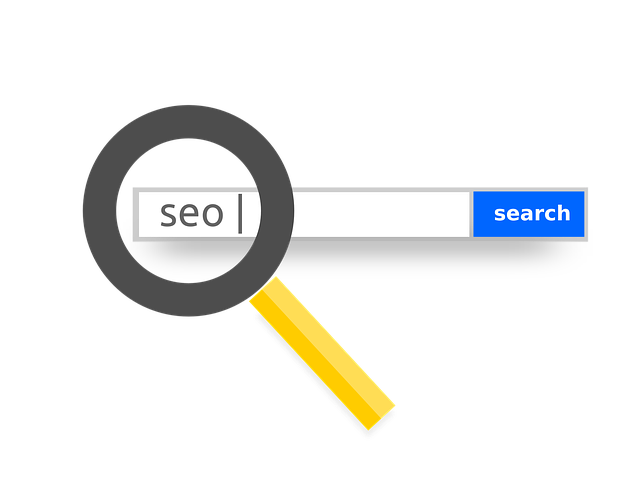Small Business SEO Training equips owners with strategies to optimize online presence through on-page (keyword research, content, fast loading) and off-page techniques (backlinks). Schema markup, a structured data language, enhances search engine understanding of web content, improving rankings, driving organic traffic, and boosting click-through rates. Correct schema implementation, aligning types with business offerings, is crucial for visibility and SEO performance. Mistakes in setup can hinder growth; comprehensive training ensures optimal local search exposure. Schema provides rich data for local SEO, attracting traffic and increasing conversions. Training empowers small businesses to make informed decisions, refine digital strategies based on real-time data, stay competitive, and adapt to evolving algorithms and consumer behavior.
“Unleash your small business’s online potential with our comprehensive guide to Schema for Small Businesses. In today’s digital landscape, effective Small Business SEO Training is key to thriving. We demystify Schema Markup, explaining its crucial role in enhancing search engine optimization (SEO) for local businesses. From understanding the basics of SEO to implementing schema successfully and avoiding common pitfalls, this article offers a step-by-step approach to boost your online visibility. Discover how schema can revolutionize your local search presence and provide valuable insights into future optimization trends.”
Understanding Small Business SEO: The Basics

Small Business SEO, or Search Engine Optimization, is a powerful tool for any local company aiming to boost its online presence and attract more customers. It involves understanding how search engines like Google rank websites and optimizing your digital assets accordingly. The basics include conducting keyword research to identify terms your target audience uses when searching for products or services similar to yours. Incorporating these keywords into your website content, titles, meta descriptions, and URLs is crucial for improving visibility in search results.
Small Business SEO Training can equip owners with the knowledge to optimize their sites effectively. It covers on-page optimization techniques, such as creating high-quality, keyword-rich content, ensuring fast page loading speeds, and implementing structured data markup. Additionally, it delves into off-page strategies like building quality backlinks from reputable sources to enhance your website’s authority and trustworthiness in the eyes of search engines.
Why Schema Markup is Crucial for Small Businesses

Schema markup, a powerful tool in the digital marketing arsenal, is especially beneficial for small businesses looking to enhance their online visibility and attract more customers. By implementing structured data through Schema Markup, small enterprises can provide search engines with valuable insights about their offerings, services, and unique selling points. This simple yet effective strategy significantly improves search engine optimization (SEO) efforts in the highly competitive digital landscape.
For instance, a local bakery that utilizes Schema Markup can ensure search engines understand it’s not just a generic food business but a specialty bakery known for its artisanal loaves and unique baking classes. This detailed information helps search algorithms rank the bakery higher among competitors, making it more likely to appear in local search results or Google Maps when potential customers search for “baking classes near me.” With the right Schema Markup, small businesses can effectively communicate their value proposition and stand out in a crowded online marketplace, ultimately driving more qualified traffic and conversions.
What is Schema and How Does it Benefit SEO?

Schema, short for Structured Data Markup Language, is a powerful tool that helps search engines understand and interpret web content more effectively. It’s like adding a clear map to your website, making it easier for search engine crawlers to navigate and index your pages accurately. By using Schema, you provide structured information about your business, products, services, reviews, and more, directly in the HTML code of your website. This structured data enriches search results with additional details, such as star ratings, pricing, availability, and even step-by-step instructions.
For small businesses, Schema can be a game-changer when it comes to SEO (Search Engine Optimization). By implementing well-structured data, you make your website more visible and appealing to search engines like Google. This results in better search rankings, which means your business is more likely to appear at the top of local or category-specific searches, driving increased organic traffic. Moreover, Schema helps in providing rich snippets, making your listings stand out from competitors in the search result, which can lead to higher click-through rates and improved engagement. Thus, Small Business SEO Training often emphasizes the importance of learning how to use Schema effectively to stay ahead in a competitive digital landscape.
Choosing the Right Schema Types for Your Business

Choosing the right schema types is a crucial step in enhancing your small business’s online visibility, especially with Small Business SEO Training in mind. Schema markup helps search engines better understand the content on your site, which can lead to improved rankings and increased organic traffic. For instance, if you run a restaurant, using `LocalBusiness` schema could be beneficial as it includes details like dining options, operating hours, and location, all of which are valuable for potential customers searching for nearby eateries. Similarly, an e-commerce store should consider implementing `Product` schema to display product names, descriptions, prices, and reviews, making shopping experiences more seamless for online users.
When selecting schema types, align them with your business’s unique offerings and target audience. For example, a service-based business might utilize `Service` schema to highlight the services provided, while a content-rich website could employ `Article` or `BlogPosting` schemas to structure blog posts and articles efficiently. Regularly reviewing and updating your schema markup based on business changes ensures that search engines have the most accurate information, contributing to better Small Business SEO Training outcomes.
Implementing Schema: A Step-by-Step Guide

Implementing schema markup is a powerful strategy for small businesses aiming to boost their online presence and attract potential customers. It’s an essential component of Small Business SEO Training, offering tangible benefits like improved search engine visibility and enhanced user experience. The process involves several straightforward steps. Firstly, identify the relevant schema types for your business, such as ‘LocalBusiness’ or ‘Product’. Then, integrate these tags into your website’s HTML code at the appropriate places, typically within the “ section of each page. Ensure accurate and complete data is used to describe your business, products, or services.
Once implemented, search engines like Google can easily understand and display your content in rich snippets, making it stand out in search results. This visual appeal not only attracts clicks but also increases trustworthiness. Regularly update the schema markup as your business evolves, especially when introducing new offerings or changes to existing ones. Remember, consistent and accurate schema implementation is key to reaping the full benefits of this SEO technique.
Common Mistakes to Avoid During Schema Setup

Small businesses, especially those looking to enhance their online presence with robust SEO strategies, often make critical mistakes during schema setup that can hinder their digital growth. One common error is neglecting to claim and verify their Google Business Profile (GBP), a vital step for any local business aiming for increased visibility on Google Maps and Search. Without this fundamental setup, businesses miss out on potential customers actively searching in their area.
Another frequent blunder is an incomplete or inaccurate schema markup. This includes vague descriptions, incorrect category assignments, or omitting essential details about products or services. Such oversights can lead to search engines misunderstanding the business’s offerings, resulting in poor indexing and reduced online discoverability. Businesses should invest time in comprehensive Small Business SEO Training to avoid these pitfalls and ensure their schema is optimized for maximum local search exposure.
Enhancing Local Search Visibility with Schema

Schema markup is a powerful tool for small businesses looking to boost their online presence and local search visibility. By implementing structured data, or Schema, on your website, you provide search engines with valuable information about your business, products, and services. This enhances your local SEO training by making your listings more rich and appealing in the eyes of search algorithms.
For example, Schema can help highlight key details like business hours, location, contact information, and unique offerings, ensuring that potential customers quickly find what they’re looking for. This precision in data presentation not only attracts more local organic traffic but also increases the likelihood of conversions. Small businesses should aim to master Schema markup as part of their SEO strategy, enabling them to stay competitive in a crowded market.
Measuring Success: Tracking Schema’s Impact on SEO

Measuring success is a critical aspect of any business strategy, and for small businesses, understanding the impact of schema on their Search Engine Optimization (SEO) can be a game-changer. By implementing structured data or schema markup, small business owners can provide search engines with valuable context about their offerings, leading to enhanced visibility and improved rankings. This is where SEO training becomes essential; it equips entrepreneurs with the knowledge to track these changes effectively.
Through Small Business SEO Training, founders learn how to utilize tools that monitor both on-page and off-page schema performance. These tools offer insights into the impact of schema markup on click-through rates, conversion rates, and overall web traffic. By regularly analyzing these metrics, small businesses can identify what works best for their target audience and make data-driven decisions to refine their digital strategies.
Future Trends in Small Business Schema Optimization

The future of small business schema optimization lies in keeping pace with evolving search engine algorithms and consumer behavior. As voice search becomes more prevalent, optimizing for featured snippets and conversational queries will be paramount. Leveraging structured data markup languages like JSON-LD will enable businesses to provide search engines with more context, leading to improved click-through rates and increased visibility.
Small Business SEO Training is crucial in equipping entrepreneurs with the skills to navigate these trends. By understanding schema markup best practices, business owners can enhance their online presence, attract more organic traffic, and ultimately drive conversions. Staying agile and adaptable will be key, as search engines continue to refine their algorithms to deliver more relevant and accurate results to users.
